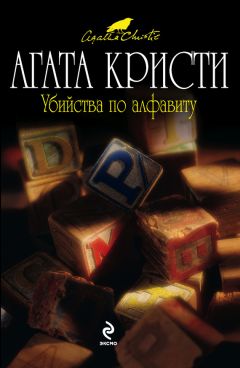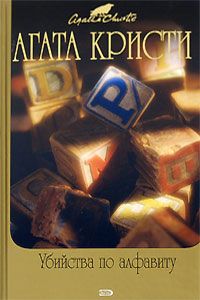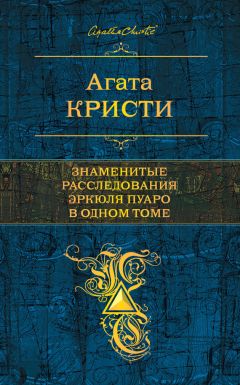Agatha Christie - Английский язык с Агатой Кристи. Убийства по алфавиту
agent [ˈeɪʤ(ǝ)nt], nearer [ˈnɪǝrǝ], once [wʌns]
"Donald Fraser his name is, and I liked him. I liked him very much," said Mrs. Barnard. "Poor fellow, it'll be terrible for him — this news. Does he know yet, I wonder?"
"He works in Court & Brunskill's, I understand."
"Yes, they're the estate agents."
"Was he in the habit of meeting your daughter most evenings after her work?"
"Not every evening. Once or twice a week would be nearer."
"She didn't say (она не сказала). Betty never said much about (Бетти никогда много /не/ говорила о /том/) what she was doing (что она делала) or where she was going (или куда она шла). But she was a good girl (но она была хорошей девочкой), Betty was (/наша/ Бетти). Oh, I can't believe (о, я не могу поверить) — "
Mrs. Barnard started sobbing again (миссис Барнард начала снова всхлипывать).
"Pull yourself together, old lady (соберись, жена: «стяни себя вместе, старая женщина»; old lady — разг. мать; жена). Try to hold up, Mother," urged her husband (постарайся держаться, мать, — убеждал ее муж; to hold up — подпирать, поддерживать; to urge — подгонять; убеждать; надоедать). "We've got to get to the bottom of this (мы должны добраться до сути этого; bottom — низ; суть, сущность)."
sob [sɔb], hold [hǝʋld], bottom [ˈbɔtǝm]
"Do you know if she was going to meet him yesterday?"
"She didn't say. Betty never said much about what she was doing or where she was going. But she was a good girl, Betty was. Oh, I can't believe — "
Mrs. Barnard started sobbing again.
"Pull yourself together, old lady. Try to hold up, Mother," urged her husband. "We' we got to get to the bottom of this …"
"I'm sure (я уверена) Donald would never (что Дональд никогда бы) — would never — " sobbed Mrs. Barnard (никогда бы, — всхлипнула миссис Барнард).
"Now just you pull yourself together," repeated Mr. Barnard (ну-ка, просто соберись, — повторил мистер Барнард).
He turned to the two inspectors (он повернулся к двум инспекторам). "I wish to God (я молю Бога: «я желаю Богу») I could give you some help (чтобы я смог бы вам оказать какую-нибудь помощь) — but the plain fact is I know nothing (но простой факт /в том, что/ я ничего /не/ знаю) — nothing at all (совсем ничего) that can help you to the dastardly scoundrel (что может помочь вам с этим подлым негодяем; dastard — трус; негодяй; scoundrel — негодяй, мерзавец, подлец) who did this (кто сделал это). Betty was just a merry, happy girl (Бетти была просто веселой, счастливой девушкой) — with a decent young fellow that she was (с достойным молодым человеком, /с/ которым она) — well, we'd have called it walking out with in my young days (мы называли это «выходить погулять» в дни моей молодости: «в мои молодые дни»). Why anyone should want to murder her simply beats me (/то/, зачем кому-то хотеть убить ее, просто поражает меня; to beat — бить) — it doesn't make sense (это не имеет смысла)."
scoundrel [ˈskaʋndr(ǝ)l], dastardly [ˈdæstǝdlɪ], decent [ˈdi:sǝnt]
"I'm sure Donald would never — would never —" sobbed Mrs. Barnard.
"Now just you pull yourself together," repeated Mr. Barnard.
He turned to the two inspectors. "I wish to God I could give you some help — but the plain fact is I know nothing — nothing at all that can help you to the dastardly scoundrel who did this. Betty was just a merry, happy girl — with a decent young fellow that she was — well, we'd have called it walking out with in my young days. Why anyone should want to murder her simply beats me — it doesn't make sense."
"You're very near the truth there, Mr. Barnard," said Crome (вы тут очень близки к правде, мистер Барнард). "I tell you what I'd like to do (я скажу вам, что бы мне хотелось сделать) — have a look over Miss Barnard's room (взглянуть на комнату мисс Барнард). There may be something (там может быть что-то) — letters (письма) — or a diary (или дневник)."
"Look over it and welcome," said Mr. Barnard (осмотрите ее и милости просим), rising (поднимаясь).
He led the way (он показал дорогу; to lead — вести). Crome followed him (Кроум последовал за ним), then Poirot (затем Пуаро), then Kelsey, and I brought up the rear (а я замыкал шествие; rear — тыл; задняя сторона).
I stopped for a minute to retie my shoelace (я остановился на минуту, чтобы снова завязать шнурок ботинка; to tie — завязывать), and as I did so (и пока я это делал), a taxi drew up outside (такси подъехало снаружи) and a girl jumped out of it (и девушка выпрыгнула из него). She paid the driver (она заплатила водителю) and hurried up the path to the house (и заторопилась по дорожке к дому), carrying a small suitcase (неся маленький чемодан). As she entered the door (когда она зашла в дверь) she saw me (она увидела меня) and stopped dead (и остановилась как вкопанная: «и остановилась намертво»).
diary [ˈdaɪǝrɪ], rear [rɪǝ], shoelace [ˈʃu:leɪs]
"You're very near the truth there, Mr. Barnard," said Crome. "I tell you what I'd like to do — have a look over Miss Barnard's room. There may be something — letters — or a diary."
"Look over it and welcome," said Mr. Barnard, rising.
He led the way. Crome followed him, then Poirot, then Kelsey, and I brought up the rear.
I stopped for a minute to retie my shoelace, and as I did so, a taxi drew up outside and a girl jumped out of it. She paid the driver and hurried up the path to the house, carrying a small suitcase. As she entered the door she saw me and stopped dead.
There was something so arresting in her pose (было что-то, приковывающее /внимание/ в ее позе; arrest — арест; задержание) that it intrigued me (что это заинтриговало меня).
"Who are you (кто вы)?" she said.
I came down a few steps (я спустился на несколько ступенек). I felt embarrassed (я чувствовал смущение) as to how exactly to reply (насчет того, как точно ответить). Should I give my name (следует ли мне назвать мою фамилию)? Or mention (или упомянуть) that I had come here with the police (что я пришел сюда с полицией)? The girl, however, gave me no time to make a decision (девушка, однако, /не/ дала мне нисколько времени принять решение; to decide — решать).
"Oh, well," she said, "I can guess (я могу догадаться)."
She pulled off the little white woollen cap (она стянула маленькую белую шерстяную шапочку) she was wearing (/которая/ была на ней надета: «/которую/ она носила») and threw it on the ground (и бросила ее на землю; to throw). I could see her better now (теперь я мог видеть ее лучше) as she turned a little (когда она повернулась слегка) so that the light fell on her (так, что свет падал на нее).
intrigue n. [ˈɪntri:ɡ] intrigue v. [ɪnˈtri:ɡ], woollen [ˈwʋlǝn], decision [dɪˈsɪʒn]
There was something so arresting in her pose that it intrigued me.
"Who are you?" she said.
I came down a few steps. I felt embarrassed as to how exactly to reply. Should I give my name? Or mention that I had come here with the police? The girl, however, gave me no time to make a decision.
"Oh, well," she said, "I can guess."
She pulled off the little white woollen cap she was wearing and threw it on the ground. I could see her better now as she turned a little so that the light fell on her.
My first impression was of the Dutch dolls (первое впечатление, /которое у меня сложилось/, было о голландских куклах) that my sisters used to play with (с которыми, бывало, играли мои сестры) in my childhood (когда я был ребенком: «в моем детстве»). Her hair was black (ее волосы были черными) and cut in a straight bob (и подстриженными прямой круглой стрижкой; to cut — резать; стричь; bob — короткая круглая стрижка /у женщин/) and a bang across the forehead (и с челкой через /весь/ лоб). Her cheekbones were high (ее скулы были высокие) and her whole figure had a queer modern angularity (и вся ее фигура имела своеобразную современную угловатость; queer — странный; необычный; angle — угол) that was not (которая не была), somehow (каким-то образом), unattractive (непривлекательной; to attract — привлекать). She was not good-looking (она не была хорошенькой) — plain rather (скорее, некрасивой; plain — уст. плоский, ровный; незамысловатый, обыкновенный; некрасивый) — but there was an intensity about her (но в ней была напряженность; intense — крепкий, сильный; интенсивный), a forcefulness (сила; force — сила) that made her a person quite impossible to overlook (которая делала ее личностью, на которую совершенно невозможно было не обратить внимание; to overlook — не заметить, просмотреть, пропустить).




